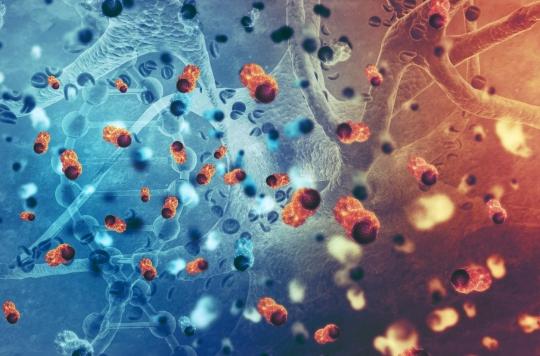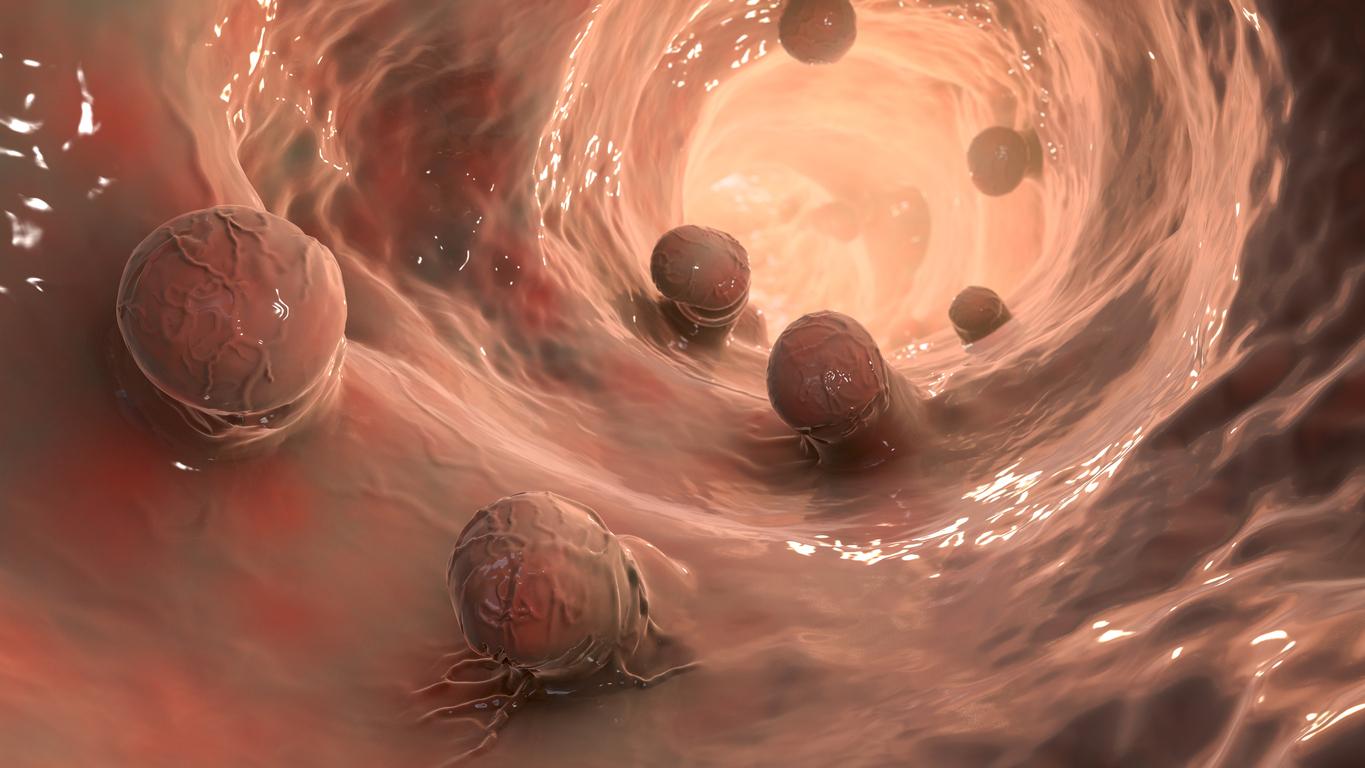Researchers have just highlighted the link between the bacterial species sheltered by our intestine and colon cancer: the latter would promote the presence of mutant proteins, which themselves would increase the proliferation of bacteria involved in the development of colorectal cancer. A track for less invasive screening techniques.

The third most common cancer in men behind lung and prostate cancer, colorectal cancer is a tumor that develops from the cells that line the inner lining of the colon and rectum. Affecting nearly 45,000 people each year in France, it can be effectively treated if taken care of early.
New work conducted by researchers at George Washington University (GW) and published in the journal Gastroenterology, could facilitate screening. They have in fact discovered the existence in the intestinal microbiota of people with colon cancer of a mutant protein. This has the particularity of blocking a pathway that regulates the proliferation and expansion of cells, which increases the number of bacterial species associated with the development of colon cancer.
An altered microbiota at the origin of colon cancer
To conduct their research, the authors of the study started from an observation: colon cancer is increasing among young people. “Current guidelines recommend screening for colon cancer in people over 50, but today we find that 15% of people with colon cancer are under 50,” says Lopa. Mishra, director of the Center for Translational Medicine at the GW Cancer Center and professor of surgery at the GW School of Medicine and Health Sciences. “We hypothesized that diet and its effects on the microbiota may be important players, and this is where we focused our study.”
They favored one track: that of the interactions between the proteins of the molecular family of cell adhesion linked to the carcinoembryonic antigen (CAECAM). By interacting with microbes, these proteins cause changes in the microbiota by promoting the proliferation of bacteria responsible for colon cancer.
The team first collected data on DNA sequences, expression levels of mRNA (i.e. messenger RNA, a copy of a portion of the corresponding DNA to one or more genes) and patient survival times in 456 cases of colorectal cancer, as well as a set of 594 samples of colorectal adenocarcinomas. The team then performed a sequencing analysis of mouse stool to identify changes in their microbiota before colon tumors developed.
The researchers then discovered that the expression of CAECAM proteins and genes that regulate the stem cell characteristics of cells increased in cases of colon cancer. They also highlighted the presence of mutant proteins in colorectal cancer, which increase the formation and proliferation of bacteria, themselves involved in the development of the disease.
Towards other forms of less invasive screening
For the research team, this discovery could lead to less invasive screening techniques for colon cancer, especially in younger patients. “We found four species of profoundly altered microbiota in our mouse study,” says Shuyun Rao, research assistant professor of surgery at the GW School of Medicine and Health Sciences. “Our next steps will be to explore this question in more detail and in a much larger population.” First concerned: young patients, who “can simply have their stools analyzed to detect the presence of these altered microbiota and thus look for a risk of colon cancer and prevent its development”.

.

















